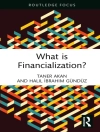Politics may be the art of compromise, but accepting a compromise can be hazardous to a politician's health. Politicians worry about betraying faithful supporters, about losing the upper hand on an issue before the next election, that accepting half a loaf today can make it harder to get the whole loaf tomorrow. In his original interpretation of competition between parties and between Congress and the president, Gilmour explains the strategies available to politicians who prefer to disagree and uncovers the lost opportunities to pass important legislation that result from this disagreement.<i>Strategic Disagreement</i>, theoretically solid and rich in evidence, will enlighten Washington observers frustrated by the politics of gridlock and will engage students interested in organizational theory, political parties, and divided government.
About the author
<b>John B. Gilmour</b> is assistant professor of government at the College of William and Mary.












